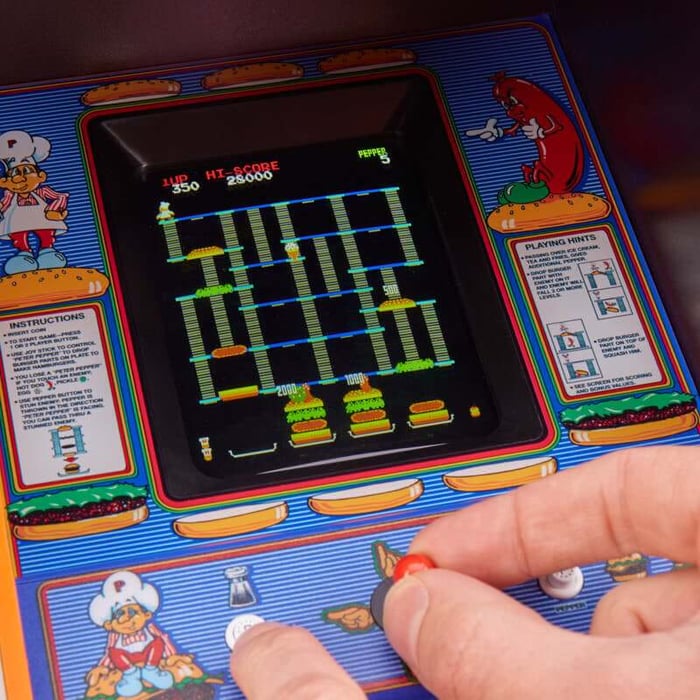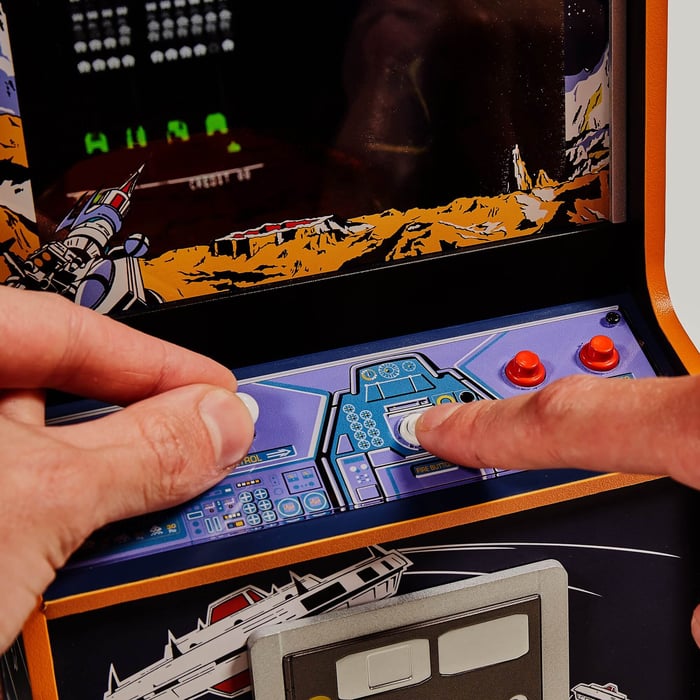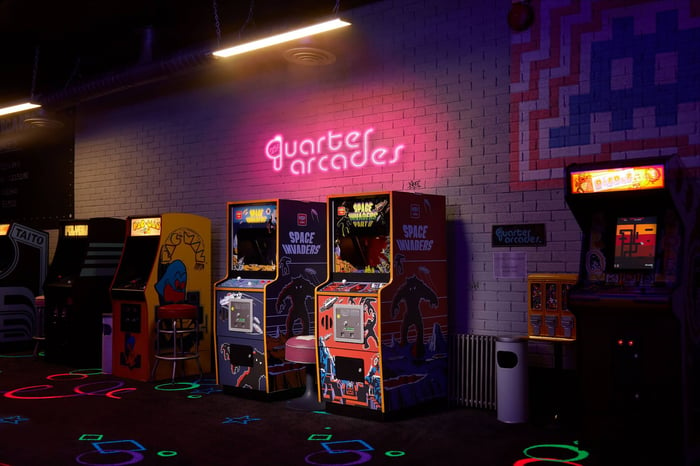The answer is a resounding yes – and the scientific evidence is more compelling than you might expect. Recent neuroscientific research reveals that arcade gaming can significantly enhance various cognitive functions, from reaction times to memory and problem-solving skills.
In an era where digital entertainment often faces criticism for its potential negative effects, a growing body of scientific research is revealing the surprising cognitive benefits of arcade gaming. Far from mere time-wasters, classic arcade games are emerging as powerful tools for brain training and cognitive enhancement.
The Science Behind Gaming and Brain Function
Landmark Research Findings
A groundbreaking study published in JAMA Network Open analysed data from nearly 2,000 children and found that those who played video games for three or more hours per day performed better on cognitive skills tests involving impulse control and working memory compared to children who had never played video games, NIH.
The research revealed fascinating neurological changes: children who played video games showed higher brain activity in regions associated with attention and memory, while also demonstrating more efficient visual processing in brain areas related to vision.
Meta-Analysis Evidence
A comprehensive meta-analysis examining over 100 cross-sectional studies found that action video game players consistently outperformed non-gamers in various cognitive skills with a large effect size (g = 0.64).
Even more impressive, intervention studies showed that training with games resulted in measurable improvements in cognitive abilities with effect sizes that remained significant even after accounting for potential biases, Psychological Research.
Specific Cognitive Benefits of Arcade Gaming
1. Enhanced Reaction Time and Processing Speed
Multiple studies demonstrate that regular arcade gaming significantly improves reaction times. Research published in Nature found that gamers had faster reaction times in cognitive tasks, with benefits extending beyond the gaming environment. Nature Research.
Key improvements include:
- Faster visual processing of complex information
- Reduced response latency in decision-making tasks
- Improved speed-accuracy trade-offs in cognitive performance
2. Memory and Attention Enhancement
A controlled study using brain training games showed significant improvements across multiple cognitive domains after just three weeks of training PMC Research:
- Attention-switching tasks improved by 87 milliseconds on average
- Motor response times decreased by 172 milliseconds
- Working memory performance showed measurable enhancement
- Sustained attention abilities demonstrated significant gains
3. Visual-Spatial Cognitive Abilities
Arcade games, particularly those requiring spatial navigation and object tracking, enhance:
- Mental rotation abilities
- Spatial memory and navigation
- Visual attention and tracking
- Depth perception and 3D spatial reasoning
The Neuroplasticity Connection
Brain Structure and Function Changes
Gaming doesn't just improve performance – it actually changes brain structure. Neuroimaging studies reveal that regular gaming promotes neuroplasticity, the brain's ability to reorganise and form new neural connections. Scientific Evidence.
Research shows gaming can lead to:
- Increased gray matter in areas associated with attention and memory
- Enhanced connectivity between brain regions
- Improved efficiency in neural processing networks
- Strengthened executive function pathways
The "Flow State" Benefit
Classic arcade games are particularly effective at inducing "flow states" – periods of deep concentration and optimal performance. This psychological state has been linked to:
- Reduced stress and anxiety levels
- Improved mood and well-being
- Enhanced creativity and problem-solving
- Better emotional regulation
Classic Arcade Games: Cognitive Training Powerhouses
Why Retro Games Excel
Classic arcade games like Pac-Man, Galaga, and Space Invaders are particularly effective cognitive trainers because they:
- Require sustained attention for extended periods
- Demand rapid decision-making under pressure
- Involve pattern recognition and strategic thinking
- Provide immediate feedback for learning optimisation
- Scale difficulty progressively to maintain optimal challenge
Specific Game Benefits
Pac-Man and Maze Games:
- Enhance spatial navigation abilities
- Improve route planning and strategy
- Strengthen working memory for path optimisation
Shooter Games (Space Invaders, Galaga):
- Boost visual attention and target tracking
- Develop hand-eye coordination
- Enhance divided attention capabilities
Puzzle Games (Tetris-style):
- Improve spatial reasoning and mental rotation
- Enhance problem-solving under time pressure
- Strengthen cognitive flexibility
Research-Backed Cognitive Domains
Scientific studies have identified nine key cognitive areas that benefit from gaming:
1. Perception
Enhanced visual processing speed and accuracy in distinguishing details and patterns.
2. Top-Down Attention
Improved ability to focus attention voluntarily and resist distractions.
3. Task-Switching and Multitasking
Better performance when alternating between different cognitive tasks.
4. Working Memory
Enhanced ability to hold and manipulate information in short-term memory.
5. Inhibition Control
Improved capacity to suppress inappropriate responses or behaviours.
6. Motor Control
Better hand-eye coordination and fine motor skill precision.
7. Problem-Solving
Enhanced analytical thinking and strategic planning abilities.
8. Processing Speed
Faster information processing and response generation.
9. Cognitive Flexibility
Improved ability to adapt thinking to new situations and requirements.
Addressing the Sceptics: What the Research Really Shows
The Scientific Consensus
While some neuroscientists have expressed scepticism about brain training claims, the evidence specifically for action-oriented and arcade-style games shows consistently positive results. The key differences lie in:
- Game design elements that promote active engagement
- Challenge progression that maintains optimal difficulty
- Immediate feedback loops that facilitate learning
- Intrinsic motivation rather than forced training
Quality vs. Quantity
Research suggests that the quality of engagement matters more than quantity. Studies show cognitive benefits can emerge from:
- 15-30 minutes of focused gaming per day
- Consistent practice over several weeks
- Challenging but achievable difficulty levels
- Variety in game types to target different cognitive domains
Practical Applications: Gaming for Cognitive Health
For Young Adults
- Academic performance enhancement through improved attention and memory
- Professional skill development in fast-paced, decision-making environments
- Stress management through engaging, flow-inducing activities
For Older Adults
- Cognitive ageing mitigation through mental stimulation
- Reaction time maintenance for daily safety activities
- Social engagement through gaming communities and competitions
For Professionals
- Enhanced multitasking abilities for complex work environments
- Improved decision-making under pressure
- Better visual attention for detail-oriented tasks
The Future of Cognitive Gaming
Emerging Research Areas
Current scientific investigations are exploring:
- Optimal training protocols for maximum cognitive benefit
- Individual differences in gaming responsiveness
- Long-term retention of cognitive improvements
- Combination therapies integrating gaming with other interventions
Technology Integration
Modern arcade gaming is evolving with:
- Adaptive difficulty systems that optimise challenge levels
- Biometric feedback to monitor cognitive load and engagement
- Virtual reality integration for enhanced spatial training
- AI-powered personalisation for individual cognitive profiles
Making Arcade Gaming Work for You
Best Practices for Cognitive Enhancement
- Choose Engaging Games: Select titles that you genuinely enjoy and find challenging
- Practice Consistently: Regular short sessions are more effective than occasional long ones
- Track Progress: Monitor improvements in reaction time and accuracy
- Vary Game Types: Rotate between different genres to target various cognitive skills
- Stay Challenged: Adjust difficulty to maintain optimal challenge without frustration
Recommended Game Categories
- Classic Arcade Shooters: For attention and reaction time
- Puzzle and Strategy Games: For problem-solving and planning
- Rhythm and Music Games: For timing and coordination
- Maze and Navigation Games: For spatial memory and planning
Conclusion: Gaming as Cognitive Enhancement
The scientific evidence is clear: arcade gaming can indeed significantly improve cognitive abilities. The benefits extend far beyond the game screen from enhanced reaction times and improved memory to better problem-solving skills and increased attention control.
Key takeaways for cognitive enhancement through gaming:
- Research-supported benefits across multiple cognitive domains
- Neuroplasticity changes that support long-term brain health
- Accessible and enjoyable form of cognitive training
- Scalable difficulty for continuous challenge and improvement
- Transfer effects to real-world cognitive tasks
As we continue to understand the brain's remarkable plasticity, arcade gaming emerges not just as entertainment but as a legitimate tool for cognitive enhancement and brain health maintenance. The next time you power up that classic arcade cabinet, remember—you're not just having fun; you're giving your brain a scientifically backed workout.
Ready to boost your cognitive abilities through retro gaming? Explore our collection of authentic Quarter Arcade machines and start your brain training journey today. Each cabinet delivers the complete original gaming experience that research shows can enhance your cognitive performance.


















